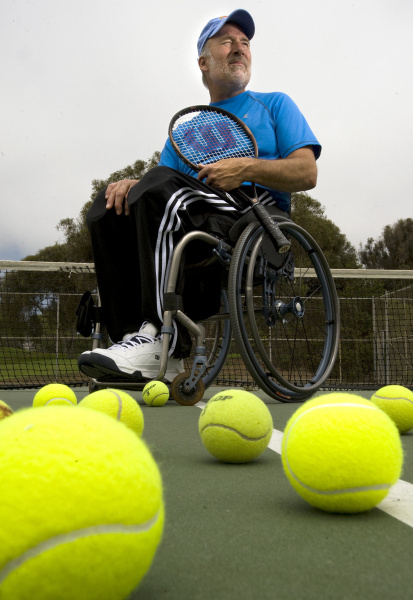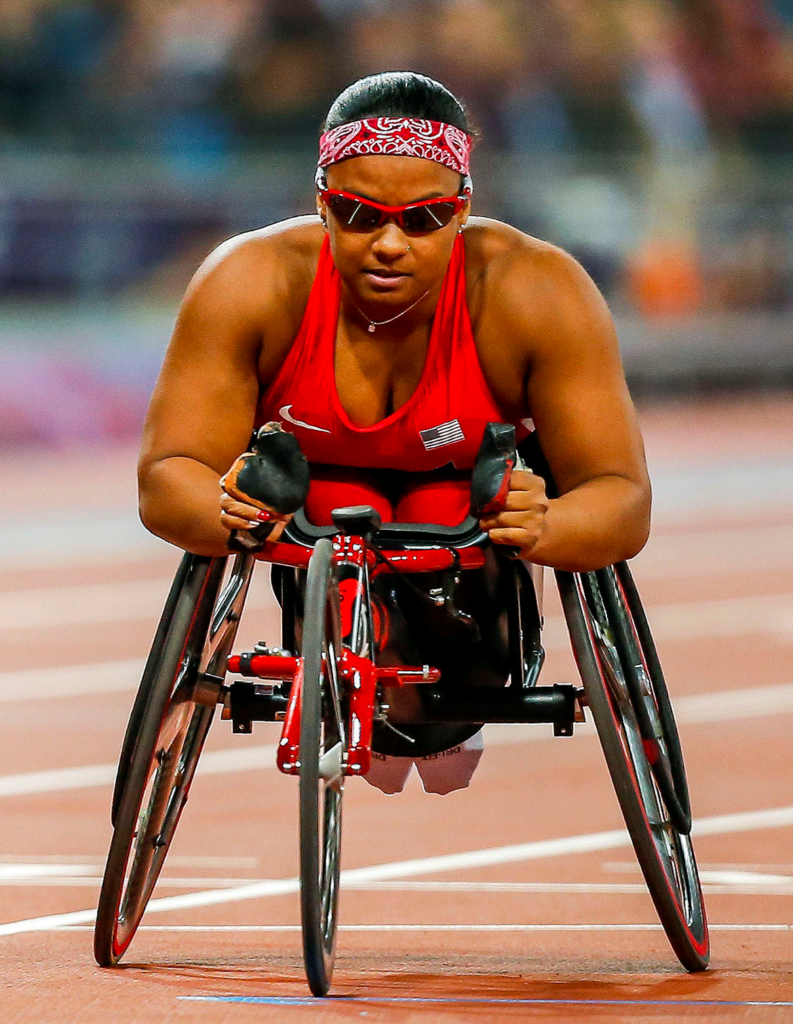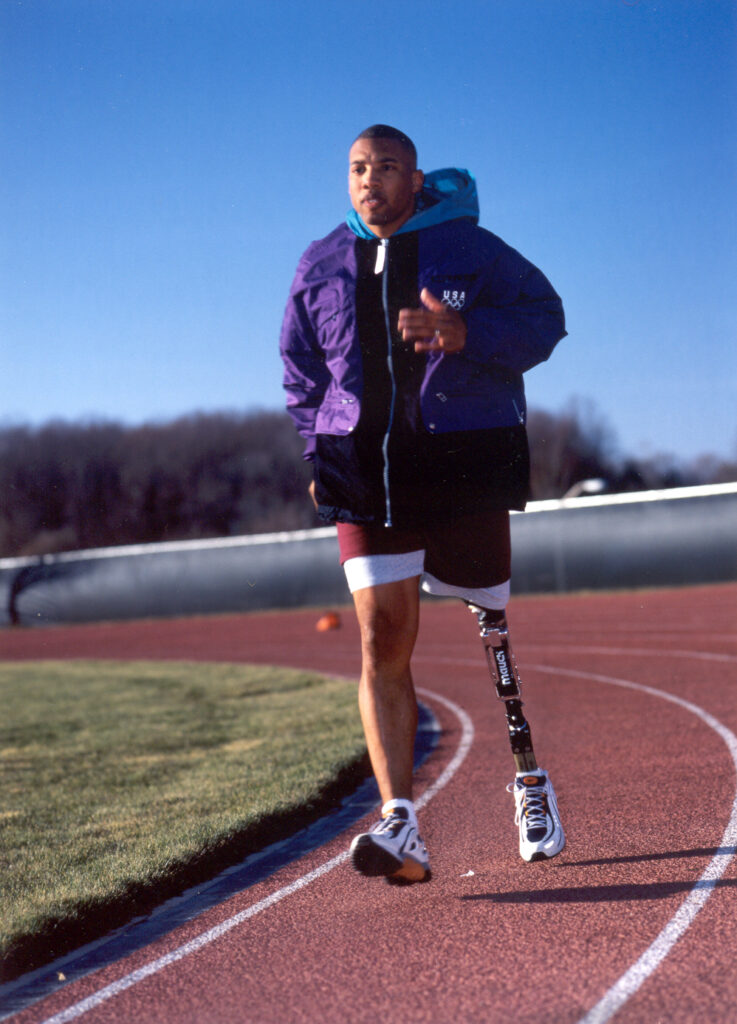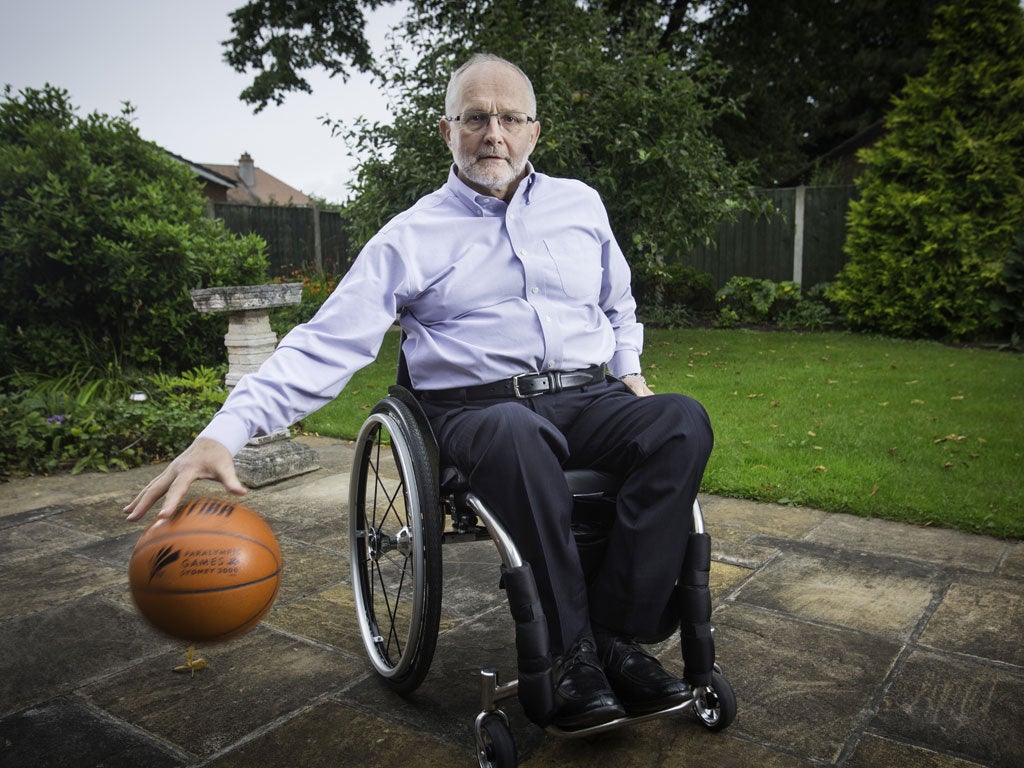Speakers Cheri Blauwet, Sir Philip Craven, Anjali Forber-Pratt, Brad Parks and John Register were speakers during Tuesday’s Honors Colloquium. Photos from URI.
The University of Rhode Island’s Honors Program continued its annual Honors Colloquium lecture series this Tuesday with a discussion about disability in the sports world.
This discussion featured a panel of former Paralympic athletes who have made significant contributions both as disabled athletes and as ambassadors for disabled athletes around the world.
The lecture began with three panelists: Dr. Anjali Forber-Pratt, Sir Philip Craven and Brad Parks. Each of them shared their stories about how they reached the Paralympic Games.
Craven, after suffering a rock climbing accident at the age of 16, went on to compete in five different Paralympic Games for wheelchair basketball and swimming from 1972 to 1988. Parks, who experimented with tennis as a method of physical therapy, would go on to win the gold medal in the 1992 Barcelona Paralympic Games for wheelchair tennis.

Born with transverse myelitis that left her paralyzed from the waist down, Forber-Pratt was inspired by Boston Marathon runners growing up to become an athlete. She went on to compete as a wheelchair sprinter in the 2008 and 2012 Paralympics in Beijing and London, respectively. Forber-Pratt described these experiences as pivotal moments in her life moving forward.
“I was really fortunate to get involved with sports and to have that become a large part of my identity and who I was growing up,” Forber-Pratt said. “The trajectory, in terms of getting involved in sport, has been something really remarkable that has stayed with me throughout my career now as a researcher and as a professor.”
Each panelist has also made remarkable contributions to the accessibility of sports for disabled individuals.
Since her time in the Paralympics, Forber-Pratt has become an assistant professor and researcher at Vanderbilt University, studying the ways that sports can lead to increased accessibility in employment and educational opportunities for individuals with disabilities. She has also worked with several countries like Bermuda, Ghana, Zambia and India to develop Paralympic programs and opportunities for disabled individuals to become involved in sports.
Parks is viewed as a pioneer of wheelchair tennis, with his efforts to expand the sport resulting in it being played in over 100 countries. Wheelchair tennis is now recognized by the International Tennis Federation and is played at all four Grand Slam events.

After his athletic career ended, Craven served as the president of the International Paralympic Committee from 2001 to 2017, and is currently an Independent Member of the Supervisory Board of Tennis Integrity Unit. Craven values sport as a universal vehicle for personal development. His goal as a major figure in Paralympic athletics is to ensure the accessibility of sports for everyone regardless of ability.
“I think a lot of people are put off by the word ‘disability;’ this other world that’s not really connected to the able-bodied world,” Craven said. “I think that if we have a common denominator of sport, we can move forward a lot more easily.”
The next panelist to speak during the lecture was Dr. Cheri Blauwet, a three-time Paralympic athlete who competed alongside Forber-Pratt as a sprinter in the 2008 Beijing games. She now serves as a member of the International Paralympic Committee’s Medical Committee and is on the Board of Directors for the United States Olympic and Paralympic Committee.
Blauwet said that while there are many incredible programs designed to give disabled individuals access to sports, they are not mainstream in the way that regular sports are. She noted that many schools do not provide inclusive sports for disabled students, forcing them to look outside of their school system for those opportunities. Her goal is to help institutions, primarily schools, build more inclusive programs to help disabled children seek more athletic opportunities.
“We have to start thinking about changing our mindset and start thinking about it more so from the lens of universal design,” Blauwet said, “where we consider adaptive sports to be built into more mainstream programs at all levels.”

The final panelist was John Register, who competed in the 1996 and 2000 Paralympic Games as a swimmer and long jumper. Register suffered a hurdling injury while training for the 1996 Olympic Games that resulted in the amputation of his left leg above the knee. Using sports as a form of rehabilitation, Register went on to swim at the 1996 Paralympic Games just 18 months after his amputation.
As a member of the U.S. Olympic Committee (USOC), Register founded the USOC Paralympic Military Program, which uses sports to assist the recoveries of injured service members.
Register spoke candidly about his desire for the normalization of Paralympic sports. He noted that the Paralympic Games often have to compete with poker for television slots, when he believes that the Paralympics should stand on equal footing with the Olympic Games for primetime viewership. He also mentioned how news stories cover the athletic achievements at these games under lifestyle and human interest pages rather than sports pages.
“Writers don’t see disability sports, at least in America, as true sport,” Register said. “We look at a person with a disability and we market them differently in the United States. So, we have to put that on equitable standing.”

